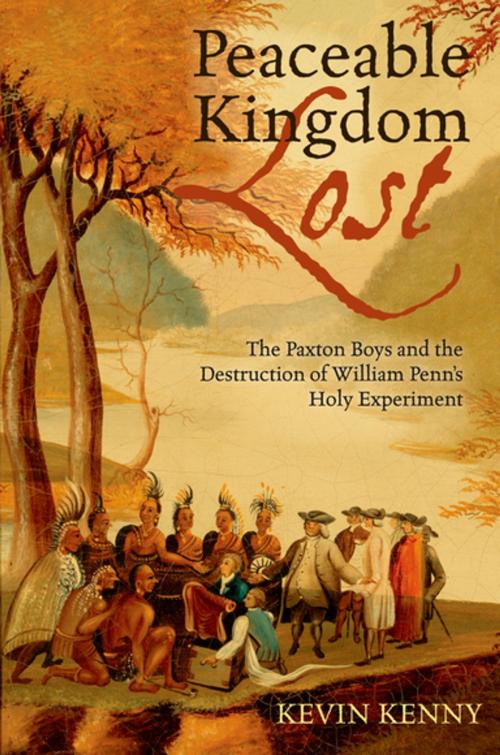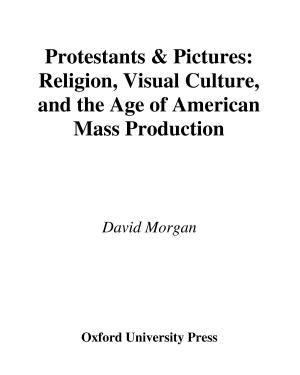Peaceable Kingdom Lost
The Paxton Boys and the Destruction of William Penn's Holy Experiment
Nonfiction, History, Americas, United States, Colonial Period (1600-1775)| Author: | Kevin Kenny | ISBN: | 9780199758524 |
| Publisher: | Oxford University Press | Publication: | July 21, 2009 |
| Imprint: | Oxford University Press | Language: | English |
| Author: | Kevin Kenny |
| ISBN: | 9780199758524 |
| Publisher: | Oxford University Press |
| Publication: | July 21, 2009 |
| Imprint: | Oxford University Press |
| Language: | English |
William Penn established Pennsylvania in 1682 as a "holy experiment" in which Europeans and Indians could live together in harmony. In this book, historian Kevin Kenny explains how this Peaceable Kingdom--benevolent, Quaker, pacifist--gradually disintegrated in the eighteenth century, with disastrous consequences for Native Americans. Kenny recounts how rapacious frontier settlers, most of them of Ulster extraction, began to encroach on Indian land as squatters, while William Penn's sons cast off their father's Quaker heritage and turned instead to fraud, intimidation, and eventually violence during the French and Indian War. In 1763, a group of frontier settlers known as the Paxton Boys exterminated the last twenty Conestogas, descendants of Indians who had lived peacefully since the 1690s on land donated by William Penn near Lancaster. Invoking the principle of "right of conquest," the Paxton Boys claimed after the massacres that the Conestogas' land was rightfully theirs. They set out for Philadelphia, threatening to sack the city unless their grievances were met. A delegation led by Benjamin Franklin met them and what followed was a war of words, with Quakers doing battle against Anglican and Presbyterian champions of the Paxton Boys. The killers were never prosecuted and the Pennsylvania frontier descended into anarchy in the late 1760s, with Indians the principal victims. The new order heralded by the Conestoga massacres was consummated during the American Revolution with the destruction of the Iroquois confederacy. At the end of the Revolutionary War, the United States confiscated the lands of Britain's Indian allies, basing its claim on the principle of "right of conquest." Based on extensive research in eighteenth-century primary sources, this engaging history offers an eye-opening look at how colonists--at first, the backwoods Paxton Boys but later the U.S. government--expropriated Native American lands, ending forever the dream of colonists and Indians living together in peace.
William Penn established Pennsylvania in 1682 as a "holy experiment" in which Europeans and Indians could live together in harmony. In this book, historian Kevin Kenny explains how this Peaceable Kingdom--benevolent, Quaker, pacifist--gradually disintegrated in the eighteenth century, with disastrous consequences for Native Americans. Kenny recounts how rapacious frontier settlers, most of them of Ulster extraction, began to encroach on Indian land as squatters, while William Penn's sons cast off their father's Quaker heritage and turned instead to fraud, intimidation, and eventually violence during the French and Indian War. In 1763, a group of frontier settlers known as the Paxton Boys exterminated the last twenty Conestogas, descendants of Indians who had lived peacefully since the 1690s on land donated by William Penn near Lancaster. Invoking the principle of "right of conquest," the Paxton Boys claimed after the massacres that the Conestogas' land was rightfully theirs. They set out for Philadelphia, threatening to sack the city unless their grievances were met. A delegation led by Benjamin Franklin met them and what followed was a war of words, with Quakers doing battle against Anglican and Presbyterian champions of the Paxton Boys. The killers were never prosecuted and the Pennsylvania frontier descended into anarchy in the late 1760s, with Indians the principal victims. The new order heralded by the Conestoga massacres was consummated during the American Revolution with the destruction of the Iroquois confederacy. At the end of the Revolutionary War, the United States confiscated the lands of Britain's Indian allies, basing its claim on the principle of "right of conquest." Based on extensive research in eighteenth-century primary sources, this engaging history offers an eye-opening look at how colonists--at first, the backwoods Paxton Boys but later the U.S. government--expropriated Native American lands, ending forever the dream of colonists and Indians living together in peace.















